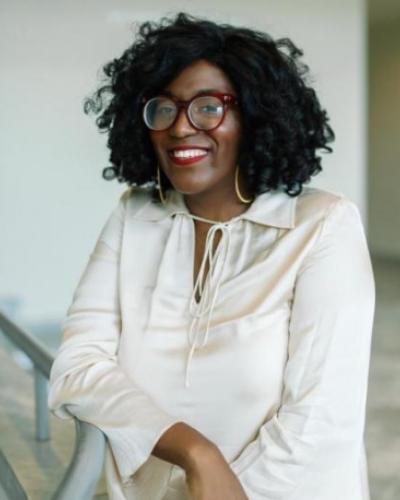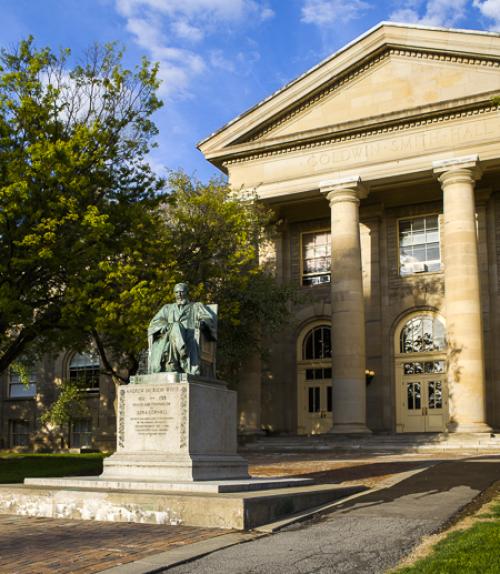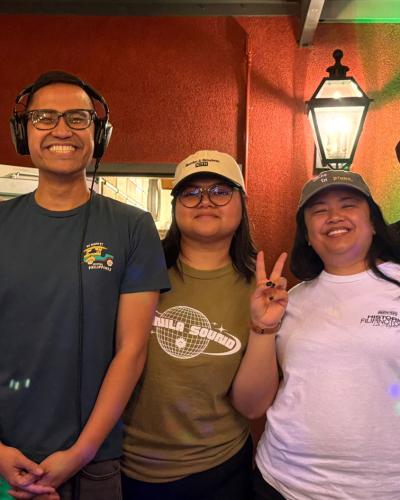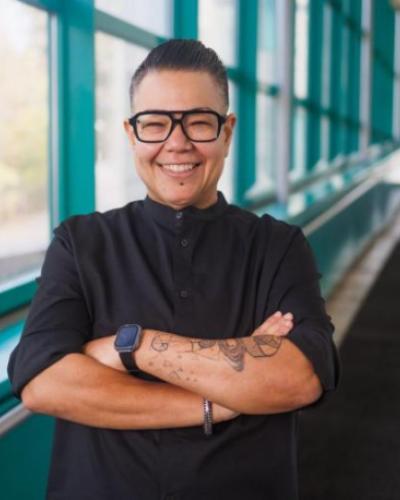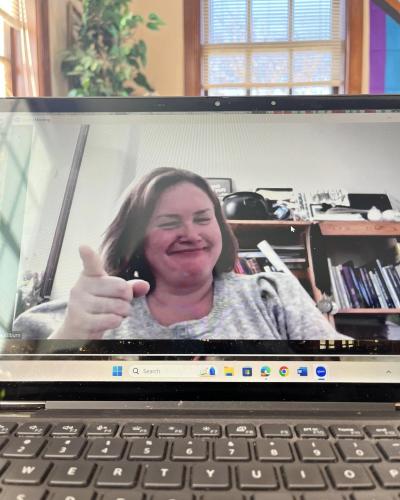PMA Ph.D. Alum Jayme Kilburn ‘23 has written a new essay called “Reshaping a Rural College Theatre Program” about theatre making and community organizing for HowlRound Theatre Commons. Kilburn is Assistant Professor of Theatre at Union Commonwealth University, Kentucky.
“I want theatre to survive—and even thrive—in spaces that have become, for various reasons, art deserts,” says Kilburn in the article. “I want to keep my job. I want to foster young theatremakers. I want to reimagine how to make theatre for generations to come... In our productions, college students have worked alongside middle schoolers and actors in their eighties. This intergenerational structure fosters vital soft skills like communication, collaboration, and empathy. It also encourages students to step into leadership roles in what functions as a true community theatre.”
Kilburn took some time to speak with us about the piece:
What inspired your work on this essay?
I graduated from PMA two and a half years ago, and since then I’ve been leading a small rural theatre program at Union Commonwealth University. I’m currently the program’s only full-time faculty member, and to be honest, coming from Cornell, the transition required a steep learning curve—particularly in understanding my students’ realities. Many of them balance full-time jobs, family responsibilities, and other life commitments alongside their studies. For them, theatre isn’t just an academic pursuit; it’s a space for community, creative expression, and the development of essential soft skills like collaboration, communication, confidence, and public speaking.
While I’ve drawn on much of what I learned at Cornell—especially lessons about community-building and flexibility during the pandemic—I’ve also had to fully embody the belief that theatre can be a vehicle for personal and communal growth. This essay reflects on the practical work of not only building a program but also responding to the specific needs of a campus and community. It’s about moving beyond inherited conservatory models, which simply don’t serve my current students, and instead reimagining theatre education through adaptability, empathy, and inclusion.
I’ve been particularly inspired by Tamilla Woodard’s HowlRound article on theatre as social service—a piece that deeply influenced my dissertation at Cornell and continues to shape how I think about the role of theatre in my students’ lives.
What do you hope readers will take away?
I wrote this article for other theatre scholar-practitioners working in the trenches—those leading small theatre programs that continue creating meaningful work despite the inevitable ebbs and flows of student involvement. Over time, I feel like I’ve cracked part of the code by opening our theatre to the wider community. Doing so has allowed us to keep producing shows and growing the program, even during semesters when student participation dips. The more visible the program becomes, the more students want to be involved; the two really feed one another.
It’s easy in this kind of work to feel overwhelmed or under appreciated. But reframing the program through the lens of theatre as social service has helped me see it differently. It’s given me a renewed sense of pride in what we’ve built and in the vital place our theatre holds on campus and in the community.
Ultimately, this article serves both as a blueprint and as a declaration that this work truly matters—beyond aesthetics or virtuosity. It changes lives. I also hope it shines a light on the many small programs that work tirelessly to stay afloat while making a profound difference in their communities.
How did your time at PMA influence your career trajectory?
My time at PMA was foundational to everything I do now. Before PMA, I was a theatre maker replicating traditional models I had learned as an undergraduate and during an internship at a regional theatre in Baltimore. Those experiences gave me a strong foundation—they instilled a solid work ethic, a director’s eye, and the technical capacity to make theatre. But I hadn’t yet discovered why I make theatre. PMA gave me that “why.”
Working with Bruce Levitt and the Phoenix Players Theatre Group (PPTG) introduced me to new ways of applying theatre methods within community contexts. Ellen Gainor pushed me to think more deeply about theatre’s role in the wider world and the forms of knowledge our work produces. Sara Warner was a guiding light throughout my time at PMA, helping me integrate feminist and queer performance theories into my practice. She connected me with feminist and womanist theatre-makers like Sue Perlgut and Rhodessa Jones, who became transformative mentors. More than anything, Sara encouraged me to think critically about my work and assured me that what I cared about was worth pursuing.
PMA taught me not only how to make theatre, but also how to teach it—how to channel my particular gifts into the classroom and rehearsal room. I’m endlessly grateful for what PMA gave me: a purpose, a community, and a framework for making theatre that matters.
Read Kilburn’s essay here.
Read more about Jayme Kilburn.

